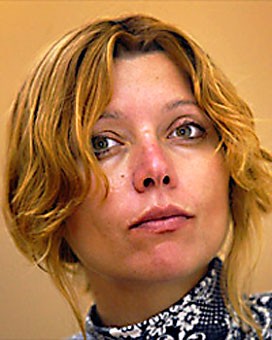In a move hailed as a victory for freedom of speech, a Turkish court acquitted Elif Shafak, a UA assistant professor in Near Eastern Studies, saying there was no evidence that she “”insulted Turkishness”” in one of her novels, according to the Associated Press.
UA Provost George Davis said he felt tremendous relief about the decision.
“”It’s joyful that this is happening,”” Davis said. “”I wrote letters (to the Turkish government) to underscore the importance of extending to her the kind of freedom of expression and living that we want everyone to possess.””
The trial ended 1 1/2 hours after it began, with Judge Irfan Adil ruling that there was insufficient evidence to suggest that Shafak committed a crime.
Shafak, 35, gave birth to a girl, Sehrazat Zelda, on Saturday and did not attend the trial as she was still in a hospital in Istanbul. If convicted, Shafak could have faced three years in prison.
Armenian characters in Shafak’s novel, “”The Bastard of Istanbul,”” refer to Turkish butchers who were part of the Armenian genocide in 1915. The massacre of Armenians under the Ottoman Empire during World War I is a taboo topic in Turkey.
Shafak was charged under Article 301, which makes public denigration of Turkishness, the Turkish Republic, the Grand National Assembly, the government, judiciary, military and security services a crime, according to the Associated Press.
Shafak’s trial gained international attention, with more than 300 riot police surrounding yesterday’s hearing. The trial came at an important time for the country, which is under evaluation to join the European Union.
The EU has warned Turkey that putting writers and journalists on trial for their speech could hamper its efforts to join the bloc, according to the Associated Press.
Although Turkey is already a democracy, it’s a country in the process of developing increased citizen-participation in the government, said Amy Newhall, director of the Middle East Studies Association and senior lecturer in Near Eastern Studies.
Whether or not the “”insulting Turkishness”” law will be changed is up to the Turkish people, Newhall said.
“”Like this country, Turkey has a wide range of opinions, including extreme conservative,”” Newhall said. “”Some people see danger in creative expression.””
Anne Betteridge, director of the Center for Middle Eastern Studies, said the trial had a “”wonderful outcome”” due in part to support from the community.
Leaders from UA departments wrote several letters in support of Shafak. The departments included English, Journalism, Middle Eastern Studies, and even a letter from provost Davis on behalf of the entire university.
Shafak believed the letters would make an enormous difference, Betteridge said.
Fenton Johnson, an associate professor of English who led a letter-writing campaign, said this is evidence that the community can influence international situations and encourage more people to become involved.
“”At a time when there’s a lot of apathy about such things, this shows such campaigns do have an impact,”” Johnson said.
Davis, who has traveled to Turkey, said although people criticize aspects of higher education in America such as faculty tenure, it is important to have academic freedom.
“”Faculty can not be reckless, but they need to explore topics that are sensitive politically, culturally,”” Davis said. “”They are an appropriate part of discourse.””
Betteridge said Shafak will return to the UA in fall 2007.
Newhall, who was part of the hiring committee that selected Shafak, said although Shafak views Turkish history in a realistic way, she cares deeply about her country.
“”Her activism is bound up in her love of her country,”” Newhall said. “”She is critical of her country, but that doesn’t mean she doesn’t love it.””









